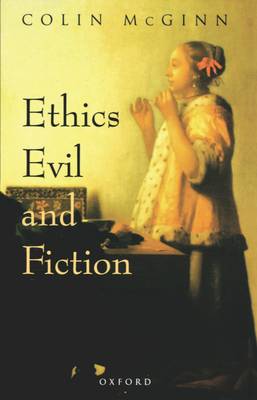
- Afhalen na 1 uur in een winkel met voorraad
- Gratis thuislevering in België vanaf € 30
- Ruim aanbod met 7 miljoen producten
- Afhalen na 1 uur in een winkel met voorraad
- Gratis thuislevering in België vanaf € 30
- Ruim aanbod met 7 miljoen producten
Zoeken
Omschrijving
McGinn's latest brings together moral philosophy and literary analysis in a way that illuminates both. Setting out to enrich the domain of moral reflection by showing the value of literary texts as sources of moral illumination, McGinn starts by setting out an uncompromisingly realist ethical theory, arguing that morality is an area of objective truth and genuine knowledge. He goes on to address such subjects as the nature of goodness, evil character, and the meaning of monstrosity in the context of an aesthetic theory of virtue, which maintains that goodness of character is the same thing as beauty of soul. Looking at such literary works as Billy Budd, Lolita, The Picture of Dorian Gray, and Frankenstein, as well as examples from film and painting, Ethics, Evil, and Fiction is an original and compelling book by a leading philosopher who is also a critic and novelist.
Specificaties
Betrokkenen
- Auteur(s):
- Uitgeverij:
Inhoud
- Aantal bladzijden:
- 196
- Taal:
- Engels
Eigenschappen
- Productcode (EAN):
- 9780198238775
- Verschijningsdatum:
- 12/08/1999
- Uitvoering:
- Paperback
- Formaat:
- Trade paperback (VS)
- Afmetingen:
- 137 mm x 215 mm
- Gewicht:
- 240 g

Alleen bij Standaard Boekhandel
+ 177 punten op je klantenkaart van Standaard Boekhandel
Beoordelingen
We publiceren alleen reviews die voldoen aan de voorwaarden voor reviews. Bekijk onze voorwaarden voor reviews.











